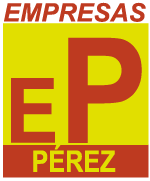What needs to be find out about media literacy or proven methods to spot fake news
In the XXI century the data circulation is constantly boosting within an common human lifetime. Information literacy requires the power to operate using this type of stream.
Very necessary certainly is the ability to evaluate and choose information and facts critically. The principle conditions for that analysis and variety of detail tend to be the pursuing:
1. Dependability.
There can be a few procedures for assessing the trustworthiness of your tips:
- the rule of three resources: help and advice is taken into account responsible whether it is confirmed by a few many sources;
- self esteem in skill-sets and awareness on the writer: material from the scientist is more credible compared to the facts with the newspaper, acknowledged for its wish to publish cool news;
- the objectives and aims for the knowledge: a articles published along with the purpose to gather all-inclusive substance relating to the issue provides you with significantly more solid content when compared to the articles and other content built to be able to offer the author’s interpretation of the complications;
- distinguish in between points and personal viewpoint: the private opinion belonging to the creator may just be different from the initial that means.
2. Completeness.
There are a few types of knowledge resources as per the criterion of completeness:
- General tips resources: dictionaries, handbooks, encyclopedias. They offer you preliminary, general facts;
- specific sources of information: monographs, content articles, industry-specific encyclopedias and handbooks. They present alot more in depth information with a explicit topic.
- extra critical information sources: information studies, commentaries with the texts, archival supplies, etcetera. They permit to deepen and broaden expertise.
3. Relevance.
-
The relevance of knowledge is outlined by its actuality and modernity.
- Topicality for the particulars is its relevance here and now;
- the information is measured by the time of its creation and therefore the publication day or when the facts resource is up to date.
4. The historic context.
This facet for the evaluation of information could be the most troublesome. You have got to solution the question: could the writer generate what he essentially thought? If ever the short-term concerns or censorship afflicted his get the job done?
The global corporation UNESCO has released the 5 regulations for media and information literacy.
As said inside of the report, UNESCO seeks to mix detail and media literacy (Laws of Media and Information Literacy, MIL), highlighting the commonplace principles for each parts.
The corporation also states both of these locations for a combination of practical knowledge and expertise desired for that modern culture throughout the whole world.
«It is crucial for citizens to be familiar with the functions of media together with other details sources, assess their subject matter critically and make conclusions – for each consumers and producers of media information and information», – discussed in the firm.
MIL rules include each of the different kinds of media along with other resources of information – libraries, archives, museums and Web regardless of technologies utilized. Extraordinary notice is going to be offered to your the instructors who’ve to become involved in the implementation of MIL into the instruction method, presenting them with suitable pedagogical tactics, curricula and resources.
The five concepts of MIL from UNESCO:
Principle one. Knowledge, interaction, library, media, know-how, online ought to be utilized by the modern society critically. They are really equivalent in standing and none of these resources need to be considered a whole lot more significant than many people.
Principle 2. Each and every citizen is truly a creator of information/knowledge. Most people has the most suitable for getting the information/knowledge as well as ideal for liberty of expression. Media and information literacy really needs to be for everybody – for men and ladies, and it happens to be carefully connected with human legal rights.
Principle 3. Details, education and messages are usually not definitely neutral, unbiased or impartial. Any conceptualization, the use and software of MIL really should make this statement sharp and comprehensible for all citizens.
Principle four. Every single citizen wants to find and comprehend new advice, information and messages and be capable to communicate with many others, whether or not he would not express this want. Their accurate for it really should in no way be violated.
Principle 5. Media and information literacy isn’t obtained at the same time. This is the lasting and dynamic adventure and routine. It may be thought to be complete if it consists of the expertise, capabilities and attitudes regarding the utilization, development and transmission of data, media and technological subject material.

Leave A Comment